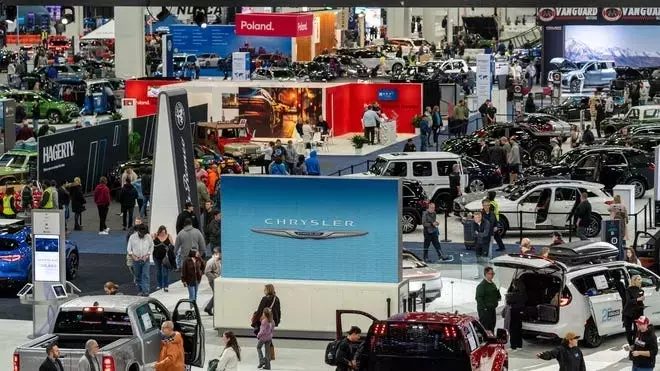
The Detroit Auto Show, held in January for the first time since 2019, has reestablished its significance in the automotive industry. The event, which took place at Huntington Place, highlighted the future of the sector while emphasizing the importance of local communities, employees, and consumers. Despite being smaller than previous editions, this year's show demonstrated a renewed focus on connecting with stakeholders and providing an engaging experience for attendees. Over five days, visitors explored various exhibits, including electric vehicle demonstrations and interactive tracks, underscoring the growing interest in automotive technology. The show also emphasized its role in fostering future talent, with increased participation from educational institutions and young professionals.
Returning to Its Roots: A Closer Look at the Detroit Auto Show
In the heart of Motor City, during a brisk winter month, the Detroit Auto Show made its long-awaited return to Huntington Place. This January gathering marked a significant milestone as it reunited industry leaders, dealers, and enthusiasts after years of pandemic-induced hiatus. Karl Zimmermann, chairman of the event and CEO of Matick Automotive Group, emphasized that success now means adapting to new realities and focusing on what truly matters—the community. The show featured displays from 22 brands, including the Detroit Three (Ford, General Motors, and Stellantis), alongside other prominent manufacturers like Alfa Romeo, BMW, and Volkswagen. Visitors had the opportunity to explore four indoor tracks, each offering unique experiences such as off-road challenges and electric vehicle test drives. One highlight was the Powering Michigan EV Experience track, showcasing the latest advancements in sustainable transportation.
Beyond the exhibits, the event served as a platform for nurturing the next generation of automotive talent. Schools and universities actively participated, bringing students to engage with cutting-edge technologies and meet industry experts. Sam Klemet, the first-time director of the show, expressed optimism about attracting younger audiences and fostering innovation. He noted that area schools organized field trips, and 16 universities presented at the AutoMobili-D technology showcase. This emphasis on education and youth engagement reflects the industry's commitment to cultivating future engineers and designers, ensuring that Detroit remains at the forefront of automotive innovation.
From a journalist's perspective, the revival of the Detroit Auto Show signifies more than just a return to tradition; it represents a shift towards a more inclusive and forward-thinking approach. By prioritizing community involvement and embracing technological advancements, the event not only reconnects with its roots but also paves the way for a brighter future in the automotive world. It serves as a reminder that while digital platforms have their place, there is no substitute for the tangible excitement and interaction that physical events bring to the table.
